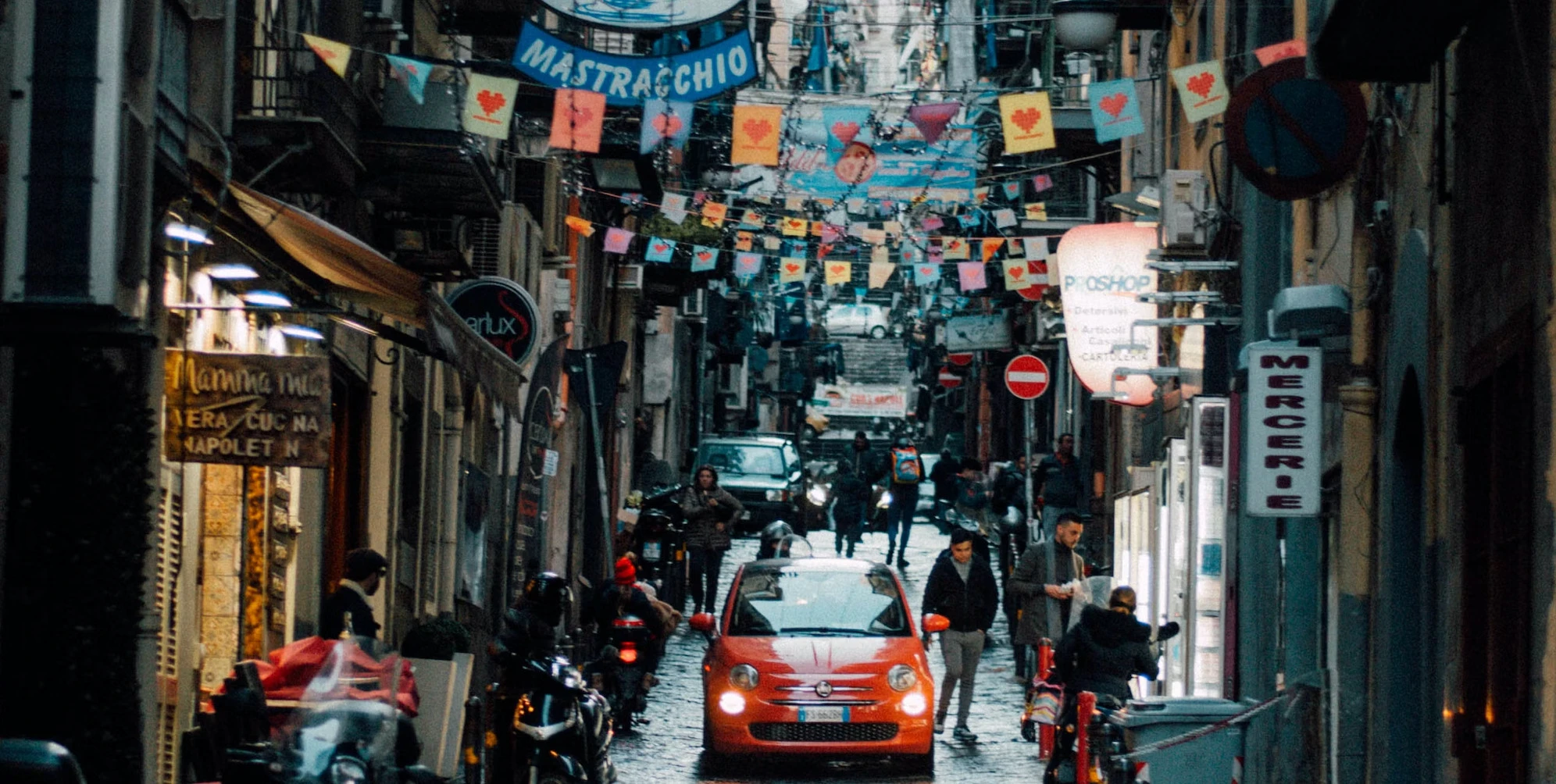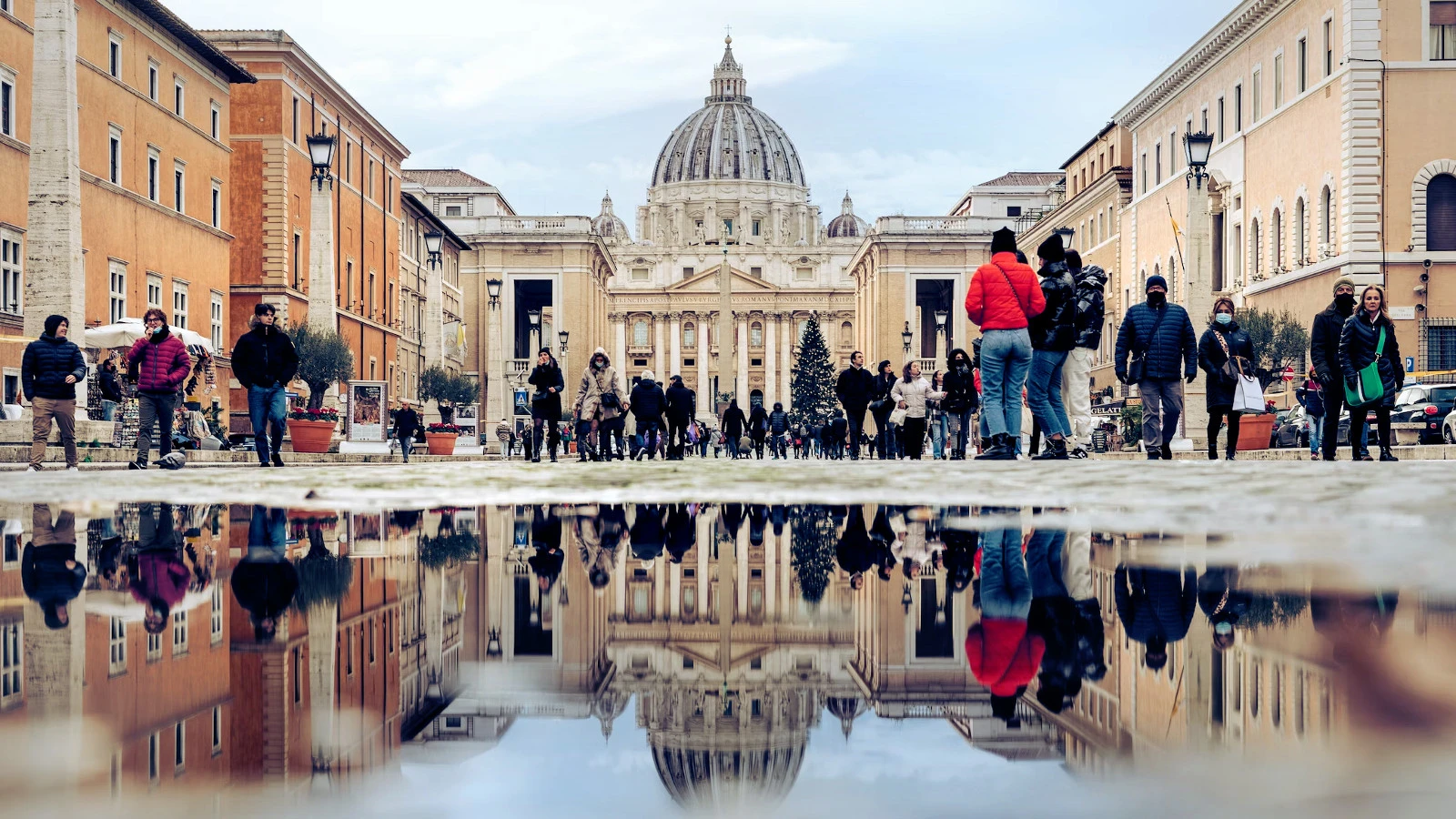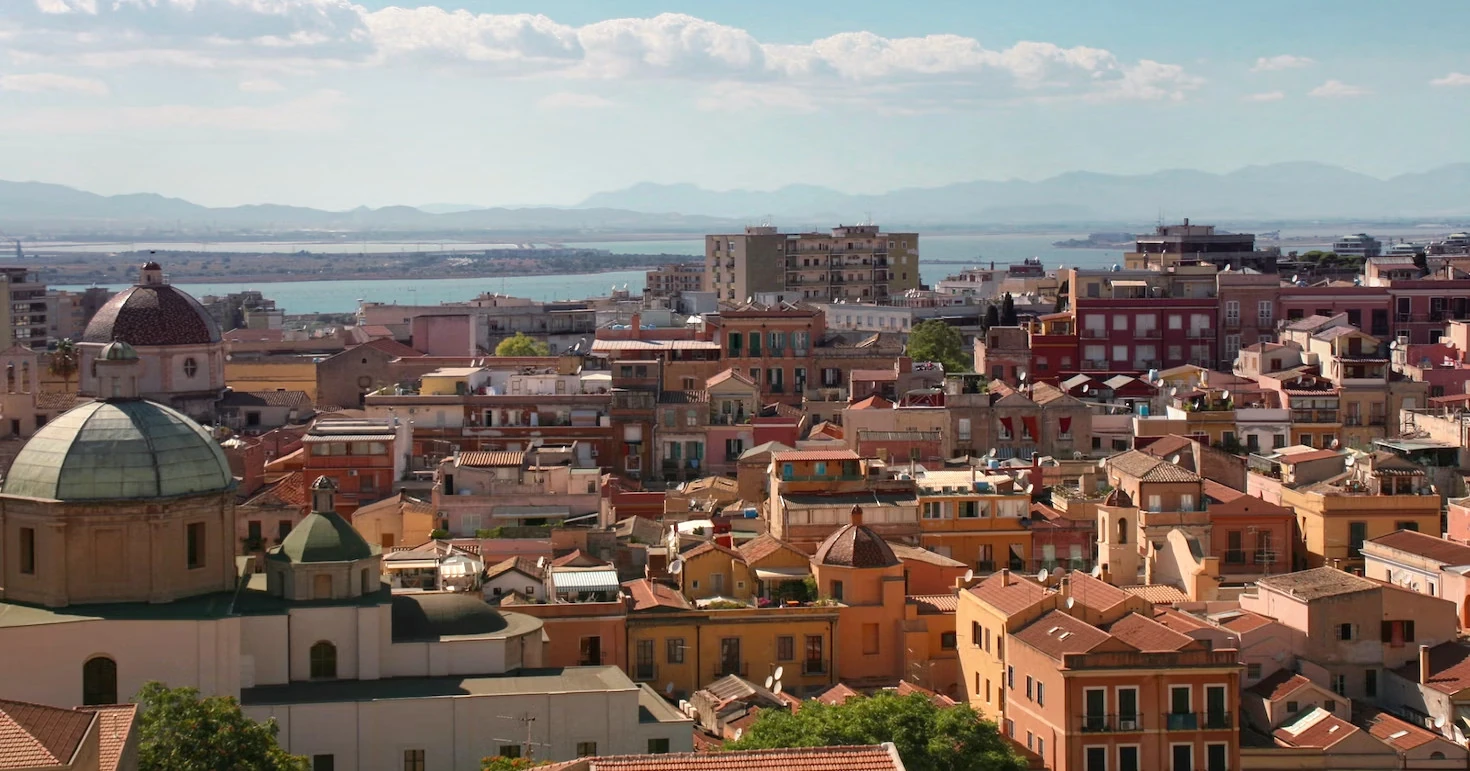Living in Catania
Catania is Sicily’s second-largest city, with a population of around 300,000.It lies on the Ionian Sea, under the shadow of Mount Etna, or A Muntagna as the locals refer to it.
Mount Etna is ever-present and has to a large extent shaped both the history and the actual existence of Catania.
Living in Catania as an expat can be both exciting and challenging.
You can enjoy the benefits of living in a lively and dynamic city that offers a lot of culture and entertainment, but the price for this is that the city is often chaotic, noisy and polluted.
Catania is a city of contrasts, where ancient and modern, tradition and innovation, beauty and decay coexist.
It is a city that will surprise you with its charm and energy.
Catania is the capital of the province of Catania and the metropolitan city of Catania.
It is the industrial, logistical, and commercial center of Sicily. Its airport, the Catania-Fontanarossa Airport, is the largest in Southern Italy.
It has about 260,000 inhabitants, but the metropolitan area has over 1 million people, making it the seventh-largest urban area in Italy.
Catania is a UNESCO World Heritage Site and a popular tourist destination.
It is known for its landmarks, such as the Piazza del Duomo, the Cathedral of Saint Agatha, the Palazzo Biscari and the Fontana dell’Elefante.
It has a GDP of about €15 billion ($18 billion), making it the 15th richest city in Italy and one of the most important economic hubs in the Mediterranean.
Search for:
What is Catania like?
Catania is a cultural and artistic city, with a rich and diverse heritage.It is home to people from different origins, religions and languages, who have contributed to the city’s identity and character.
Catania is also a cultural and artistic hub, with a long and glorious history and legacy.
It hosts many museums, galleries, churches, monasteries and festivals, covering various fields of interest, such as art, music, literature, theater, cinema, architecture and crafts.
Some of the most famous cultural attractions in Catania are the Monastero dei Benedettini, one of the largest Benedictine monasteries in Europe, the Teatro Massimo Bellini, Italy’s largest opera house after La Scala in Milan, the Catania Jazz Festival, one of the most prestigious jazz events in Europe, and the Feast of Saint Agatha, one of the most spectacular religious festivals in the world.
Climate
Living in Catania means experiencing a Mediterranean climate, with mild winters and hot summers.In the winter, it’s cool and rainy, and you can admire the snow-capped Etna.
In the summer, it’s hot and sunny, and you can enjoy the beach and the sea.
The spring and the autumn are pleasant and variable, with some sun and some rain.
You can see the flowers and the fruits, and enjoy the festivals and the events.
Catania is quite dry and sunny by Sicilian standards, but it also has some cloudy and stormy days.
The weather can be influenced by the volcanic activity of Mt.
Etna, which can cause ash fall and temperature changes.
Economy
Catania is the second-largest city of Sicily, and one of the most important economic centers of southern Italy.It has a diversified and innovative economy, based on sectors such as petrochemicals, pharmaceuticals, biotechnology, microelectronics, agriculture, and tourism.
It is also a strategic and logistic hub, with a well-developed transport network, including a motorway, a railway, and an airport, connecting it to other major Italian and European cities.
That said, the local transport infrastructure is still insufficient and needs improvement.
However, Catania also faces some economic challenges, such as the impact of the global crisis, the environmental sustainability, the social inclusion, and the digital transformation.
The city authorities have implemented various policies and initiatives to address these issues, such as supporting the local enterprises and startups, promoting the green economy, enhancing the social welfare, and investing in the digital infrastructure.
Education
Catania is a university city, with a large and diverse student population.It has one of the oldest and most prestigious universities in Sicily and Italy, the University of Catania, founded in 1434, offering a wide range of courses and degrees, from humanities and arts to science and medicine.
Some of the most famous and renowned academic institutions in Catania are the Botanical Garden, the second oldest in Italy, the Astrophysical Observatory, the oldest in Sicily, the Scuola Superiore di Catania, an elite school for excellence, and the Mediterranean Centre for Arts and Sciences, a leading research and training centre.
The city also has many public and private schools, catering to the needs of local families and children.
Some of the most popular and reputable schools in Catania are the Liceo Classico Mario Cutelli, the Liceo Scientifico Archimede, the Istituto Tecnico Industriale Vittorio Emanuele III, and the Istituto Professionale per i Servizi Turistici.
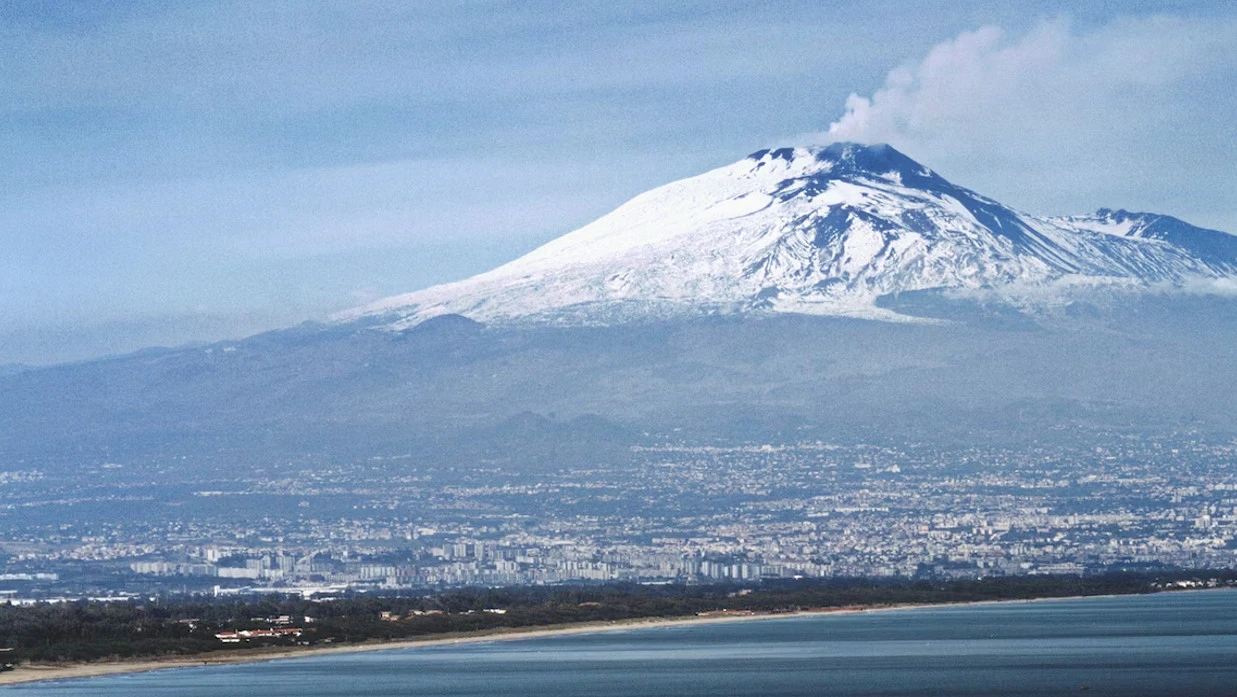
Cost of living in Catania
The cost of living in Catania is moderate compared to other Italian cities.It is the 11th most expensive city in Italy, after Milan, Rome, Venice, Florence, Bologna, Naples, Turin, Genoa, Palermo and Bari.
A family of four estimated monthly costs are €2,614 without rent, and a single person estimated monthly costs are €1,362 without rent.
Rent in Catania is also moderate, especially in the suburbs.
For example, a one-bedroom apartment in the city center costs about €400 per month, while a three-bedroom apartment costs about €800 per month.
The prices of food, transportation, utilities, and entertainment are also lower than the national average.
Is Catania safe?
Catania is a relatively safe city for tourists and expats, with a moderate crime rate compared to other major cities in Sicily and Italy.However, some precautions are recommended, especially in certain areas and situations.
The most common crimes in Catania are theft, robbery, fraud, and vandalism, which usually target urban and suburban areas, such as the railway station, the city center, the industrial zone, and the outskirts.
To avoid these risks, it is advisable to be vigilant and careful, to keep your valuables close and secure, to avoid suspicious or aggressive people, and to report any incident to the police.
Catania is also generally safe at night, but it is better to avoid walking alone in dark and isolated streets, and to stick to the well-lit and busy areas.
Pros and cons of life in Catania
| Pros | Cons |
|---|---|
| Vibrant and cosmopolitan city | Hot and humid city |
| Rich history and culture | Expensive housing |
| Proximity to the Mount Etna | Language and culture barriers |
| Delicious food and desserts | Noisy and chaotic |
| Good public transportation | High crime rate |
| Low cost of living | Low work and opportunities |
| High quality of healthcare | Corrupt and inefficient system |
| Lively and diverse city | Less friendly and welcoming atmosphere |
Advantages of Living in Catania
Catania is a vibrant and cosmopolitan city, with a rich history and culture that dates back to ancient times.You can admire its stunning architecture, such as the Baroque buildings, the Roman amphitheater, and the Duomo, and visit its many museums, galleries, and theaters.
It is also a culinary city, with a variety of delicious dishes and desserts, such as arancini, cannoli, caponata, and granita, and a famous fish market, where you can buy fresh seafood.
The city has a good public transportation system, which includes buses, trams, and metro, and it is well connected to other parts of Sicily and Italy by train, ferry, and plane.
Moreover, you can enjoy its proximity to the Mount Etna, the largest active volcano in Europe, where you can have breathtaking views and exciting activities, such as hiking, skiing, and wine tasting.
Catania is a lively and diverse city, where you can meet people from different backgrounds and nationalities, who contribute to the city’s social and cultural life.
Italian is the main language here, but you can also find people who speak English, French, and Spanish, which makes it easier for you to communicate and find work.
The city has a dynamic and innovative economy, which offers you many opportunities for work and career development, especially in sectors such as tourism, education, technology, and research.
Catania has a low cost of living, which makes it more affordable than other Italian cities, and a high quality of life, with excellent education, healthcare, and social services, which ensure your well-being and happiness.
Disadvantages of Living in Catania
Catania can be hot and humid to live in, especially in the summer, when the temperatures can reach up to 40°C.You can face difficulties in finding affordable housing, especially in the city center, where the demand is high and the supply is low.
You can also encounter problems with the language and culture, as Italian is not widely spoken and the locals can be reserved and suspicious.
The city can be noisy and chaotic, with traffic and pollution, which can affect your health and environment.
Catania is not very safe, and the crime rate is high, especially for car theft and pickpocketing.
You can also have trouble finding work and opportunities, as the economy is not very stable and the unemployment rate is high, especially for young people and foreigners.
Furthermore, the city can have a corrupt and inefficient system, which can be frustrating and annoying, especially for expats, who have to deal with a lot of bureaucracy and red tape.
In addition to that, compared to other parts of Sicily, Catania can have a less friendly and welcoming atmosphere, which can make it hard for some people to integrate and feel at home.
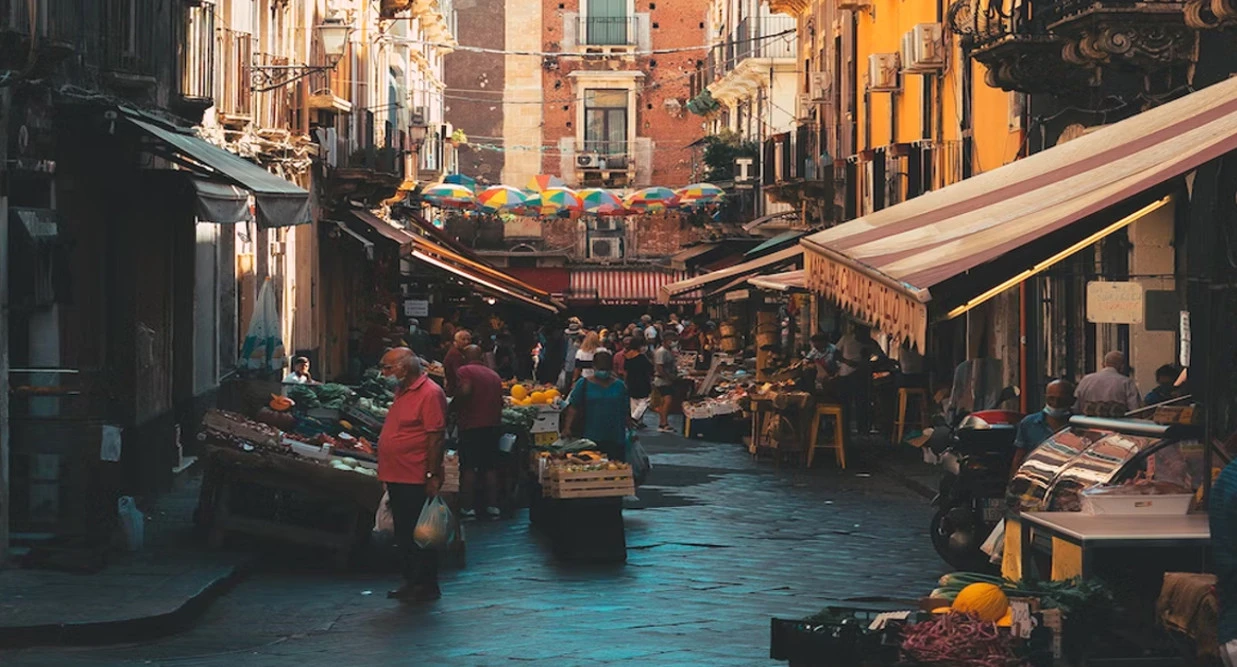
FAQs
What is Catania like for foreigners?
Catania is a vibrant and cosmopolitan city, with a rich history and culture that dates back to ancient times.It is the second-largest city in Sicily, the largest island in the Mediterranean, offering a variety of attractions, such as the Baroque buildings, the Roman amphitheater, the Duomo, and the Mount Etna.
Living in Catania as an expat can be both exciting and challenging.
You can enjoy the benefits of living in a sunny and lively city that offers a lot of food, music, festivals, and markets, but you also have to deal with the low quality of services, the traffic, the pollution, and the crime.
Some of the best areas for expats to live in Catania are the historic center, the seaside, and the suburbs.
There is also a US military base named Sigonella, which is about 15 km away from the city, where many expats work and live.
What is Catania like for students?
Catania is an attractive destination for students who want to study in Sicily or abroad.It is a city that offers a wide range of academic programs, from humanities and social sciences to engineering and medicine, from public and private universities and colleges to international and prestigious institutions.
Students in Catania can benefit from a rich and diverse learning environment, a large and active student community, a varied and affordable cultural offer, and a lot of opportunities for internships and career development.
However, students in Catania also have to cope with the low quality of education, the lack of resources and facilities, the high dropout rate, and the difficult job market.
What is Catania like for women?
Catania is a city where women face many challenges and opportunities, depending on their personal and social circumstances.Some women in Catania struggle with the effects of sexism, patriarchy, and violence, which limit their freedom, rights, and opportunities in various domains, such as education, work, health, and politics.
Some women in Catania enjoy the benefits of solidarity, support, and empowerment, which enable them to pursue their goals, interests, and passions in various sectors, such as tourism, social work, and culture.
Some women in Catania experience a mix of challenges and opportunities, depending on their specific location, social class, family background, personal attitude, and individual choices.
What is Catania like for LGBTQ people?
Catania is a city where LGBTQ people face different levels of acceptance and discrimination, depending on their personal and social contexts.Some LGBTQ people in Catania find the city to be relatively welcoming and tolerant, especially compared to other parts of Sicily or southern Italy.
They can access some events, festivals, resources, and services that cater to their needs and interests.
Some LGBTQ people in Catania encounter the city to be prejudiced, intolerant, violent, or stigmatized, especially in some rural and traditional sectors of the society.
They have to deal with ignorance, homophobia, and discrimination that affect their safety, rights, and well-being.
Some LGBTQ people in Catania adapt to the city by being discreet and respectful of the local customs and traditions, while also seeking support and community from other LGBTQ people or allies.
Is Catania a poor city?
Catania is a moderately poor city in Italy, with a GDP per capita of €18,000 ($21,000), which is lower than the national average of €28,000 ($33,000).Catania has a stagnant and dependent economy, based on sectors such as tourism, education, technology, and research.
It is also a center for migration and social problems, hosting many refugees and asylum seekers.
However, Catania also has some potential and opportunities, such as its proximity to Mount Etna, its cultural and artistic heritage, and its young and creative population.
According to the latest data, the unemployment rate in Catania is 18.5%, much higher than the national average of 8.8%.
The poverty rate is 16.7%, which is higher than the national average of 9.4%, and affects about 180,000 people in the city.
Is Catania dirty?
Catania is a fairly dirty city in Italy, with a poor level of air quality, waste management, and water sanitation.Catania ranked 97th out of 104 Italian cities in the latest environmental survey by Legambiente and Ambiente Italia, which measures the quality of urban ecosystems.
Catania has failed to implement effective measures to improve its environmental performance, such as reducing the car use, enhancing the public transportation, promoting the bike use, and supporting the green economy.
However, Catania also has some initiatives and projects, such as the Etna Green Park, the Catania Green City, and the Catania Smart City, which aim to improve the city’s sustainability and livability.
Is Catania walkable?
Catania is not very walkable city, especially in the outskirts where the attractions are scarce.The public transport system is unreliable and insufficient, with buses, trams, and metro often delayed, overcrowded, or broken.
There are few bike-sharing services and bike lanes for cyclists.
Some challenges for walkers are the uneven and dirty streets, the traffic and pollution, and the crime and safety.
The city also has a ZTL (limited traffic zone) in the center, which restricts the access of cars and requires a permit, but it is not well enforced and often ignored.
